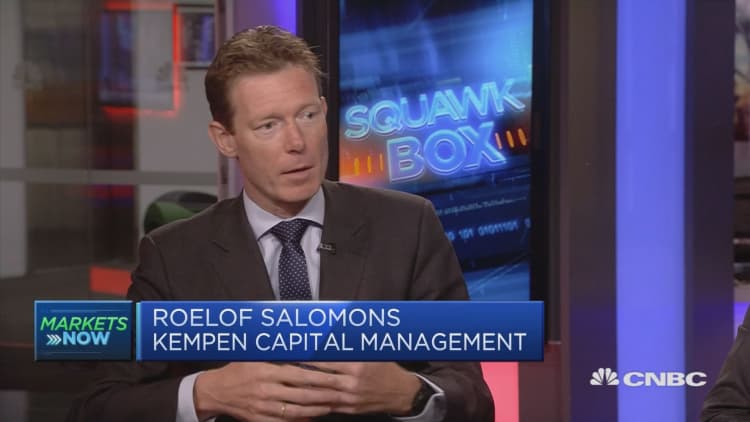Some money managers are increasingly nervous about an upcoming recession amid higher interest rates and tighter credit availability.
“It’s a classical late cycle story. So, when I was here last time, I said we were long and nervous. We are no longer long, we are increasingly nervous about this,” Roelof Salomons, chief strategist at Kempen Capital Management, told CNBC’s “Squawk Box Europe” on Thursday.
A late cycle represents an economy that has been growing, but is poised to fall into a recession, amid tighter credit availability, lower profit margins and tighter monetary policy.

According to Salomons, the evidence for a late cycle is all there: the yield curve is flattening, which usually predicts an upcoming recession; the credit spreads are widening, suggesting that investors are afraid of taking risks; and defensive stocks are outperforming, which are a safer option to survive changes in the economic cycle.
“Everybody is talking about when this cycle will rollover, but that’s a late 2019, early 2020 story. But the pest is biting and the money matters,” Salomons said.
“It is too early for the economy to rollover but for markets it is time to get back home,” he added, suggesting that as investors are taking fewer risks, thereby they prefer U.S. stocks to emerging market equities, credit with investment grade, and so on.
Laurent Godin, senior equity analyst at Indosuez Wealth Management, voiced similar concerns in a note Wednesday.
“The market is concerned about the duration of the global economy expansion cycle and the bull market has now limited runway,” he wrote.
An end to a bull market would suggest that equities might fall in price and boost selling. According to Godin, the best sectors to hold in such scenario are technology, financials, and energy.
“They are also the sectors that currently benefit from the most net analyst upgrades for the coming quarters. However, equity markets will face a more volatile environment in the coming months with limited upside, in our opinion,” Godin added.


